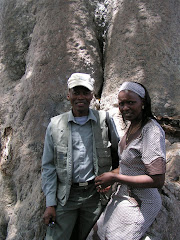In Botswana, the concept of the best interests of the child is not constitutionally enshrined nor built into public or private institutional decision-making and policy-making; courts of law; administrative or legislative bodies.
In its original jurisdiction, the High Court is the upper guardian of minor children. Courts, therefore, consider the welfare or best interests of the child as being paramount, and have affirmed this principle in various judicial pronouncements (see below). The concept, as judicially interpreted, is given an all-embracing approach that seeks to protect the general welfare of the child, such that all relevant circumstances are taken into account in determining what is best for the child.
The Children’s Act of 2009 makes every magistrate a Commissioner of Child Welfare, and where there is no magistrate, the District Commissioner, District Officer of the administrative district, or the Chief .
The Children’s Act of, 2009 provides that:
A person or the court performing a function or exercising a power under
this Act shall regard the best interests of the child as the paramount
consideration.
.(1) The following factors shall be taken into account in determining
the best interests of the child :–
(a) the need to protect the child from harm;
(b) the capacity of the child’s parents, other relative, guardian or other person to care for and protect the child;
(c) the child’s spiritual, physical, emotional and educational needs;
(d) the child’s age, maturity, sex, background, and language;
(e) the child’s cultural, ethnic or religious identity;
(f) the likely effect on the child of any change in the child’s circumstances;
(g) the importance of stability and continuity in the child’s living
arrangements and the likely effect on the child of any change in, or
disruption of, those arrangements; and
(h) any wishes or views expressed by the child, having regard to the child’s
age, maturity and level of understanding in determining the weight to be given to those wishes or views; or
(i) any other factor which will ensure the general well – being of the child.
(2) The provisions of subsection (1) shall not be construed as limiting the factors that may be taken into account in determining what is in the best interests of the child.
7. The following principles shall be observed in the administration of this Act
–
(a) no decision or action shall be taken whose result or likelihood is to
discriminate against any child on the basis of sex, family, colour, race,
ethnicity, place of origin, language, religion, economic
status, parents, physical or mental status, or any other status;
(b) every child shall be cared for and protected from harm;
(c) the parents, family and community of a child have the primary responsibility of safeguarding and promoting the child’s well – being;
(d) every child shall have stable, secure and safe relationships and living
arrangements;
(e) a child’s parents and any other people who are significant in the child’s
life shall be given an opportunity and assistance to participate in decision - making processes under this Act that are likely to have a significant impact on the child’s life;
(f) the people referred to in paragraph (e) shall be given adequate information, in a manner and language they understand, regarding –
(i) decision – making processes under this Act that are likely to have a
significant impact on the child’s life,
(ii) the outcome of any decision about the child, including an explanation of the reasons for the decision, and
(iii) any relevant complaint or review procedure;
(g) decisions about a child shall be consistent with cultural, ethnic and
religious values and traditions relevant to the child; and
(h) decisions about a child shall be made promptly having regard to the age, circumstances and needs of the child.
I hope this has helped shed some light in the new Act. Let’s hear your views…
Cheers!
Subscribe to:
Post Comments (Atom)











No comments:
Post a Comment